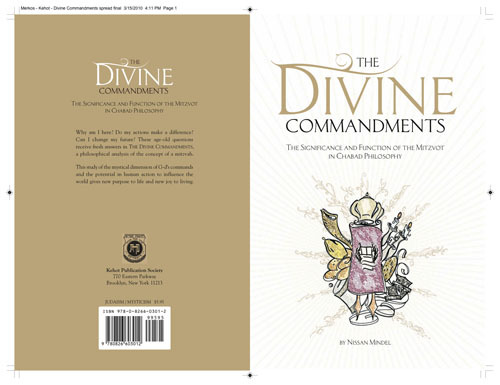The Kosher Bookworm: Shavout in literature and history
by Alan Jay Gerber
Issue of May 14, 2010/ 1 Sivan 5770A holiday that celebrates the giving of the Ten Commandments surely deserves literary notice and this week’s essay will be devoted to Shavuot, the festival that highlights the greatest of all spiritual events in human history.As Yeshivat Har Etzion’s Rav Yaakov Beasley notes, we should acknowledge that the holiday’s commemoration is not fixed by celestial factors. “In truth, it is not entirely accurate to say that all holidays are bound by astronomical determinations — all are, except one,” Rav Beasley writes. “One mo’ed shares the Shabbat’s disregard of astronomy. Having no fixed point in the sky, Shavuot’s holiness derives from the grains of the earth, the counting of the harvests from barley to wheat.”
This festival celebrates both earthbound nature and its bounty as well as the divine intervention of a series of commandments that were to define our faith.
In 1945, just as the Holocaust came to an end, a little book was written and published by a then-obscure Brooklyn publisher, the Kehot Publishing Society. The book was titled “The Commandments,” and was written by a young man, Rabbi Dr. Nissan Mindel.
This year marks the 65th anniversary of this eloquent work’s publication. After scores of printings and two revisions, it is now retitled, “The Divine Commandments,” and has been re-released just in time for your Shavuot reading pleasure.
Organized into seven thematic segments, this brief definition of Jewish theological belief defines for us within the context of the Chabad tradition such concepts as personal self-restraint, our connection with G-d, the real purpose of creation, and the real source of life. All are brought together for us to learn from and to practice in our daily observance.
This little book of 55 pages, when read seriously, will give the reader a better understanding of the true meaning of what is behind our mitzvoth.
The author of this work, Rabbi Mindel, now of blessed memory, was a distinguished author, editor, and translator. He was trained in European yeshivot where he received his rabbinic ordination. Rabbi Mindel also studied law and political science at the University of Manchester. He graduated with a B.A. and a M.A., and he received his Ph.D. in the study of Semitic Languages from Columbia University.
Dr. Mindel was associated with the Chabad movement and served in many leadership and scholarship positions till his passing in 1999. He was a prolific writer and translator and was a pivotal personality in the translation of many Chassidic classics into the English tongue.
The reading of the Book of Ruth is one of the central events of the Shavuot festival. Inasmuch as this holiday commemorates the birth and passing of King David, this reading teaches us about the life and travails of David’s great, great, grandmother, Ruth.
Rabbi Dr. Meir Levin composed a fascinating commentary on the Book of Ruth. Titled, “The Dawn of Redemption” (Urim, 2009), the work highlights, in a mature and sophisticated manner, the entire saga, though it absents some of the more legendary aspects that have placed the work into question, both historically and theologically.
The historical value and perspective can best be demonstrated by the following observations of Dr. Levin.
“We all know that we carry our parent’s legacy with us through life, sometimes as a burden, sometimes as a blessing. However, we often do not appreciate the extent of our indebtedness to the generations that preceded us. The simple fact is that as families share similarities, inclinations and proclivities — so do nations. Some call these assortments of qualities ‘national character’ while others appeal to the collective unconscious of the entire human race, but, whatever they may be, these roots are deep, extending to the distant past, to the crucible out of which nations arose.
Every man and woman exists within this continuum of heredity and tradition. Each family and nation is given their allotted number of chances. This is true of individual failings as of communal ones.”
Ponder these words carefully as you read the events of Ruth’s sojourn, as well as current events, and consider their relevance today. Also examine the reason why the sages chose this particular work to be studied at this time.
This commentary by Dr. Levin deserves our attention because, unlike other works on Ruth, he takes this Biblical narrative as a serious historical and nationalist lesson for us, both in terms of a larger perspective and as the frail human creatures that we truly are. As the characters in the book play their roles, Dr. Levin enables us, through his commentary, to better appreciate their actions and motives.
For certain, you will never regard the Book of Ruth in the same way after learning from the pen of Dr. Meir Levin.

 55.0°,
Mostly Cloudy
55.0°,
Mostly Cloudy 




